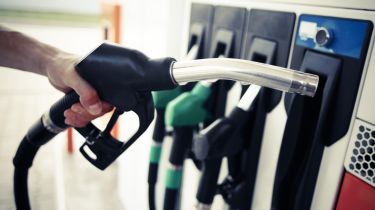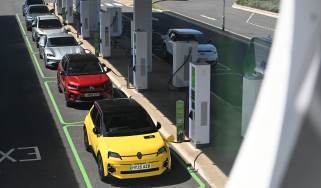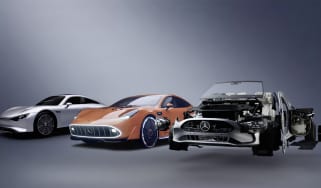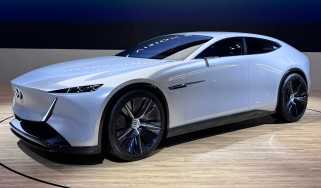What are biofuels?
What are biofuels? And what role could they play in the future of cars and motoring?

Unlike fossil fuels, biofuels are man made fuels created using plant-based renewable resources often known as biomass. Because biofuels are renewable they can work towards reducing a combustion-powered vehicle’s CO2 and other harmful emissions.
All petrol and diesel fuels sold in the UK are required to contain a certain percentage of biofuel in order to help meet wider emissions targets. So biofuels may be more commonplace than you first thought.
The current formulation of regular unleaded petrol sold in the UK is E10, this code indicates that the fuel contains up to 10 per cent bioethanol. Some premium fuels are still produced using the older formulation known as E5, indicating up to five per cent of the biofuel is used. Meanwhile, diesel sold in the UK contains up to seven per cent biodiesel. It’s marked as B7 across all forecourts in the country.
What are biofuels?
Biofuels are made from renewable sources of carbon that have been harvested recently. So think along the lines of plants, trees, grass or agricultural waste.

When burned, biofuels produce far less sulphur oxide, ozone and carbon monoxide, and while they still release carbon dioxide into the atmosphere, some people argue that this is offset by the CO2 absorbed as plant sources for the fuel are grown. Biofuel can act as a substitute for fuels like petroleum, propane, coal and gas.
How are biofuels made?
There are two types of biofuel used in cars: bioethanol and biodiesel. Bioethanol is formed by breaking down the cells of living organisms into sugars, which are then fermented to produce ethanol; a type of alcohol. It can also be made by extracting starch from plants like maize and wheat, which in turn can be used to make sugar.
Biodiesel is made by combining vegetable oil or animal fat with alcohol. Good sources include rapeseed, soybeans, coconut, algae, palm oil and jatropha plants.
On their own, both bioethanol and biodiesel contain less energy per litre than pure petrol or diesel, although when mixed together they improve combustion performance and reduce emissions of harmful gases like carbon monoxide and sulphur oxide.
Are there drawbacks to using biofuels?
While there are obvious advantages to using biofuels, there are a handful of disadvantages too. First and foremost of these is that they still produce CO2 when burned, which leads to greater amounts of greenhouse gas in the atmosphere. A certain amount of this is offset by the fact that the plants used to make the fuel in the first place absorb CO2 as they’re grown.
However, there are claims that the extra energy that goes into producing biomass (such as ploughing fields and spreading fertilizer) means they produce more CO2 than fossil fuels do already.
There’s also the threat to food production to consider. Every acre of land that’s used to make biofuels is land that isn’t being used to grow crops to keep the population fed. The environmental impact of forests being cleared for farmland that may be used to grow plants for fuel is a further downside.
Do biofuels have a future?
It seems unlikely that biofuels will ever be a direct replacement for petrol and diesel, although that isn’t to say that they won’t play their part over the coming years. The Government wants the country to be completely carbon neutral by 2050, with hybrid and electric cars key to eradicating tailpipe emissions on our roads. Biofuels could help reduce our carbon footprint in the meantime.
A more promising avenue than Biofuels could be synthetic fuels or efuels. Petrol and diesel are known as ‘hydrocarbons’ because they’re made up of hydrogen and carbon atoms derived from oil. In contrast, eFuels get their hydrogen from water and carbon from the air, combining them in a structure similar to petrol and diesel. Synthetic fuels can be created with renewable energy, and carbon captured by their creation can offset the CO2 emissions when they are burned. It’s thought that eFuels could have potential as a way of storing energy generated by renewable sources during times of low demand.
Looking to go green with your next car? Check out our list of the best electric cars...









